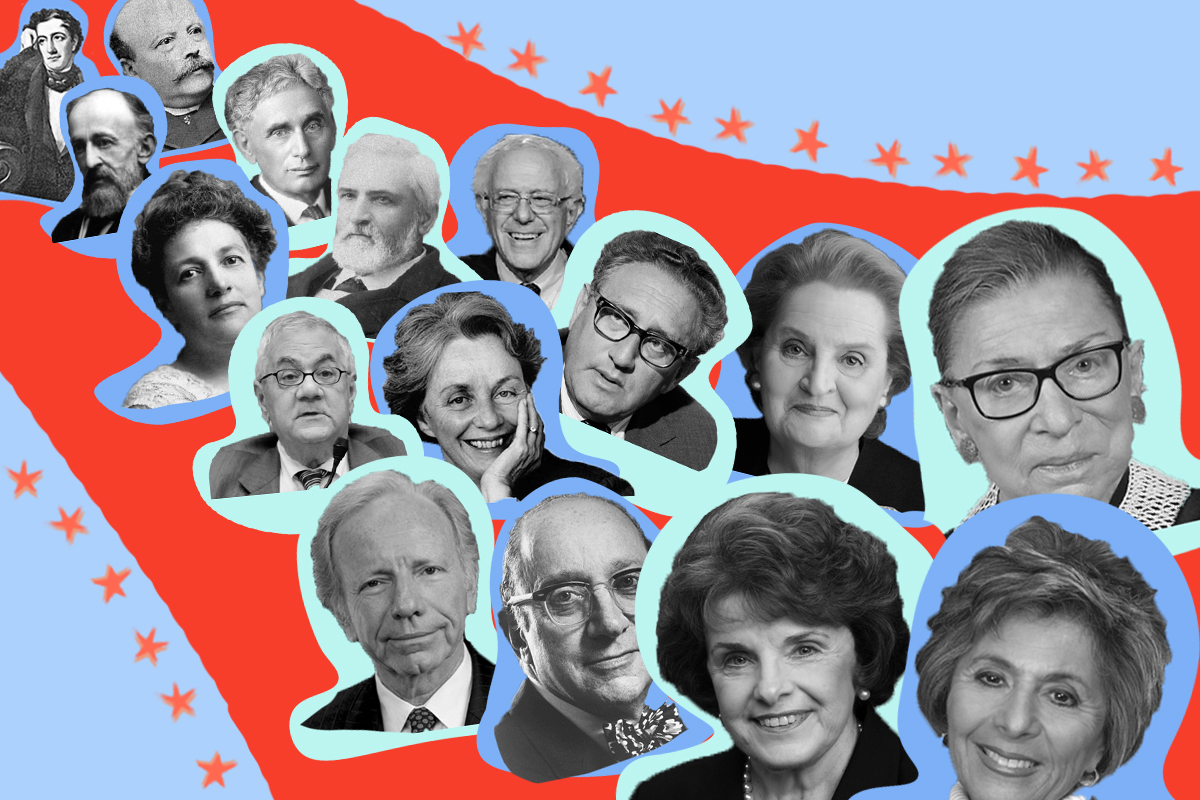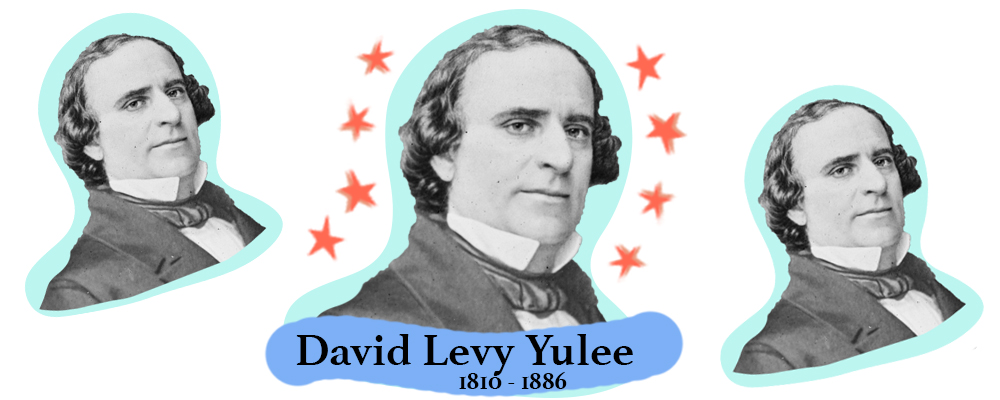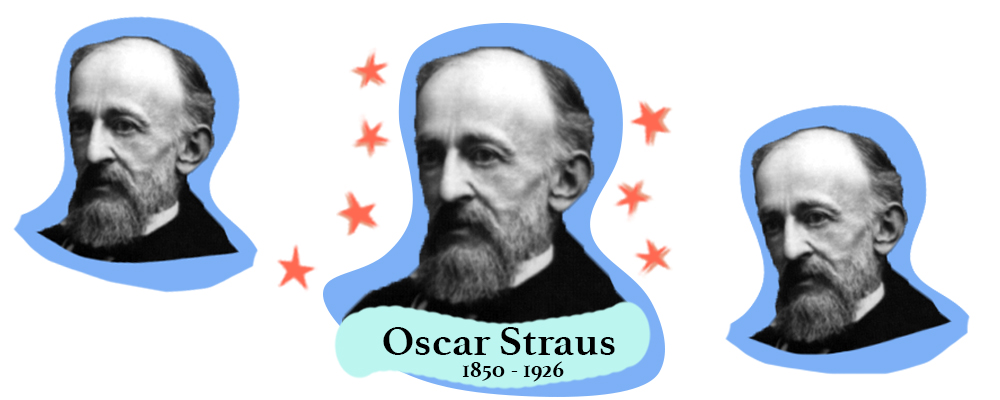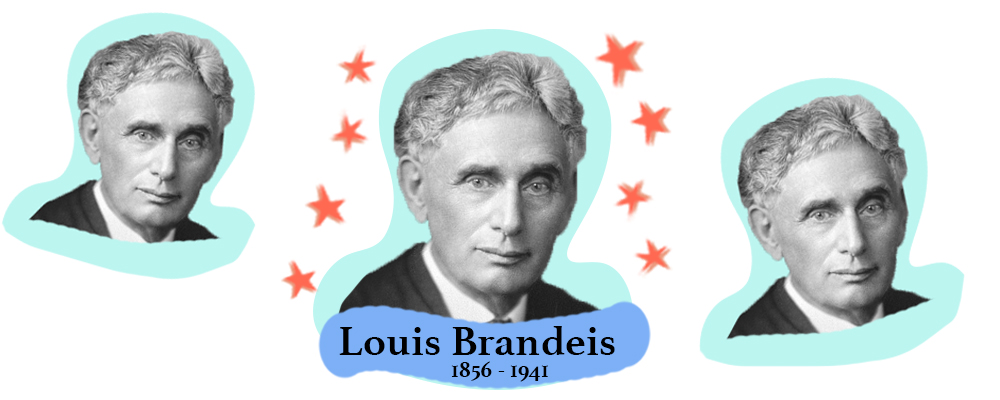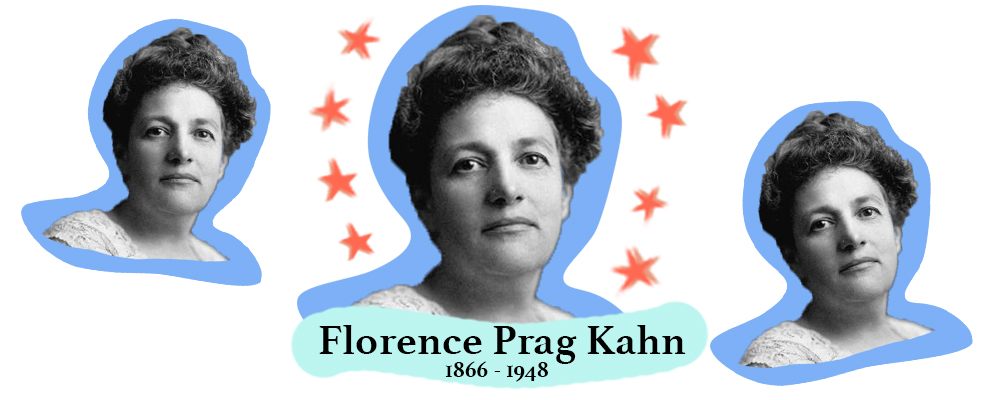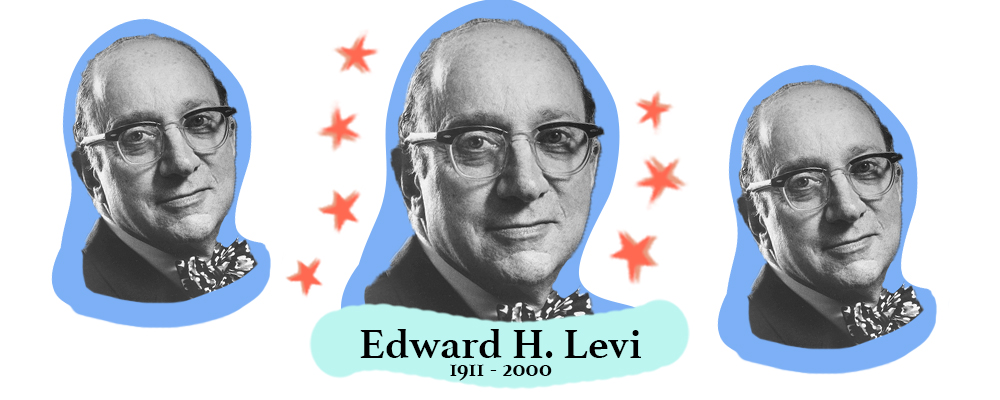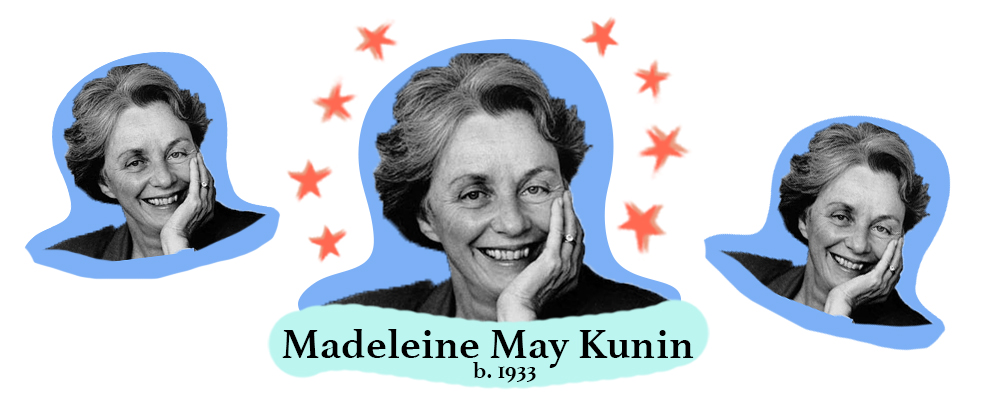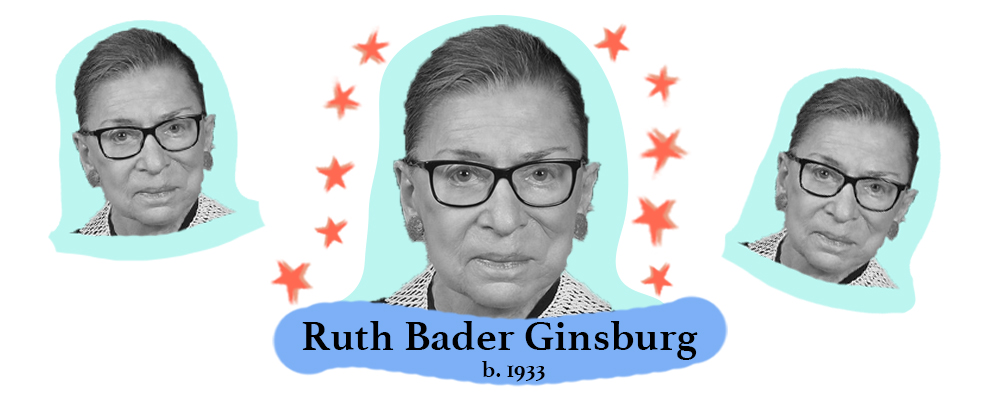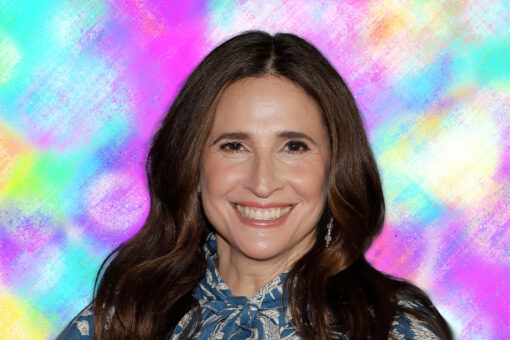As we enter a year where we may have our first Jewish president (Bernie Sanders and Mike Bloomberg, two Jewish men, are both Democratic candidates), we decided it was a good time to look back on other “firsts” in American Jewish history. These were the people who became the first Jewish men and women to hold particular political offices, the people who paved the way for many more Jews to come.
A quick note: We went off of this list of Jewish political milestones, but independently verified each one where possible. And this list is not exhaustive. If we started doing Jewish firsts in every single position, we would be here for a very long time.
A second note: As you’ll see in the 1700s and 1800s section, many of these people were slaveholders. While we love to celebrate Jewish people breaking barriers, it’s horrific and terrible that so many of them did so on the backs of slaves. That’s American history for you.
Jump ahead: 1700s / 1800s / 1900s / 2000s
First Jewish person in a colonial legislature
Quick history note: A colonial legislature was one branch of government in the Thirteen Colonies; there was a governor, appointed by the British Crown, and the legislature had two houses — the upper house was appointed by the governor, and the lower house was a representative assembly, elected by property owners.

Francis Salvador was born in 1747 in London to a Sephardic Jewish family. His dad, Jacob Salvador, died when he was 2 years old, shortly before the birth of Francis’ younger brother, Moses. When Francis and Moses came of age, they inherited £60,000 (😱). Francis then married his first cousin, Sarah (😱😱). They had a son and three daughters. His brother, Moses, went to the Hague.
Francis’s uncle (and father-in-law), Joseph Salvador, had purchased land to help Sephardic Jews settle in the New World; in the 1730s, Sephardic Jews had been settling in Charleston, South Carolina, in a district called “Ninety Six” known more commonly as “Jews Land.” In December 1773, Francis arrived in Charleston and became a plantation owner. He bought slaves to work his plantation in Coronaca, in the Ninety Six District.
In 1774, Francis was elected to the First Provincial Congress of South Carolina, as a representative of the Ninety Six District, becoming the “first Jew in America to represent the masses in a popular assembly.” (Technically, at the time, Jews couldn’t hold office or vote.) In 1776, Frances was killed while fighting in the American Revolution. He was 29 years old. (Read more in Chapter IV, The Jews of South Carolina by Barnett Abraham Elzas.)
Fun fact: We are doing fun facts for all these people but honestly there is nothing that fun about Francis. Sorry!

First (male) Jewish member of the U.S. House of Representatives
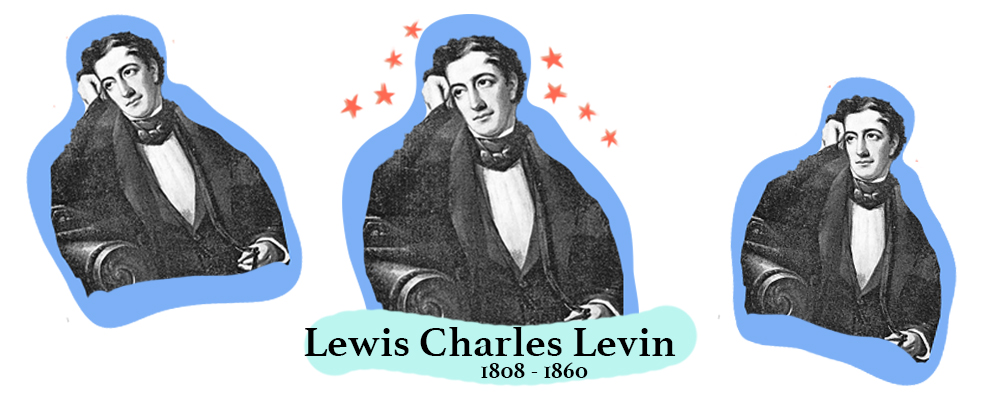
Lewis Charles Levin was from Charleston, South Carolina; at the time Charleston had the largest Jewish community in the U.S. According to Zachary Schrag in Tablet, “Levin was a rabble-rouser, conspiracy theorist, bigot, and shanda fur di goyim.”
Levin entered the American political sphere in the early 1840s as the editor of a Philadelphia newspaper, speaking vehemently against Catholics and spreading rumors that the Catholics wanted to remove the Bible from public schools. (He got his start campaigning against alcohol.) In 1844, Levin and his political party, the American Republican Party (later called the Native American party, then the Know Nothing party), were involved in the Philadelphia Nativist Riots. Tl;dr for the riots: anti-Catholic and anti-immigrant sentiment, 10+ people died. After that, Levin ran for Congress and was elected (while an indictment against him for riots and treason was pending). His platform?
(1) Naturalization period should be 21 years
(2) Only native-born should be elected to political office
(3) Reject “foreign interference” in all institutions
He was in office from 1845 to 1851, representing Pennsylvania’s 1st district. In 1846, he became the only nativist in Congress. The nativists were far-right, xenophobic, racist, anti-Catholic, and anti-immigration. Levin was their first leader, a “Donald Trump of the 1840s.” What a legacy. Levin later died in the Philadelphia Hospital for the Insane.
Fun fact: Go read Lewis Levin Wasn’t Nice in Tablet.
First (male) Jewish member of the U.S. Senate
David Levy Yulee was born in 1810 in St. Thomas, to a Sephardic Jewish family. His dad, Moses Elias Levy, was Moroccan, and his mom was from a Sephardic family in England. In 1821, the Levys moved to Florida. Moses bought 50,000 acres of land, wanting to create a “New Jerusalem” for Jewish settlers in north central Florida called “Pilgrimage Plantation.” Moses was a slaveholder, but later advocated for the gradual emancipation of slaves.
But let’s focus on his son: David went to a boarding school and college in Norfolk, Virginia, then passed the bar in 1832 and established a law practice in St. Augustine, Florida. He served in a territorial militia in Florida, fighting in the Second Seminole War, and was then elected to the Florida Territory’s Legislative Council, serving from 1837 to 1839.
In 1851, he founded a plantation that was built and maintained by enslaved Africans. (It’s now a historic site, because yikes: Yulee Sugar Mill Ruins Historic State Park.) In 1853, he chartered the Florida Railroad.
In 1841, he represented Florida in the U.S. House of Representatives, but Florida wasn’t a state yet. (That’s why Lewis Charles Levin gets to be the first Jewish guy in the U.S. House.) He then helped write Florida’s constitution. In 1845, Florida became a state, and Yulee was elected to the Senate. The first Jew in the Senate!
He resigned from the Senate in 1861 to support the Confederacy. After the Civil War, he was imprisoned for nine months for aiding in the escape of Confederate president Jefferson Davis. He died at age 76 in New York. He is called the “Father of Florida’s railroads.” He only wanted railroads because he wanted more white immigrants. He was a fucking slaveholder, let’s not erase that!
Fun fact: He now has a town and county named after him. Is this fun? We don’t know. He kinda sucked.
First (male) Jewish mayor of an American city
This is subject to a lot of dispute! There are four different people credited. The main one, however…
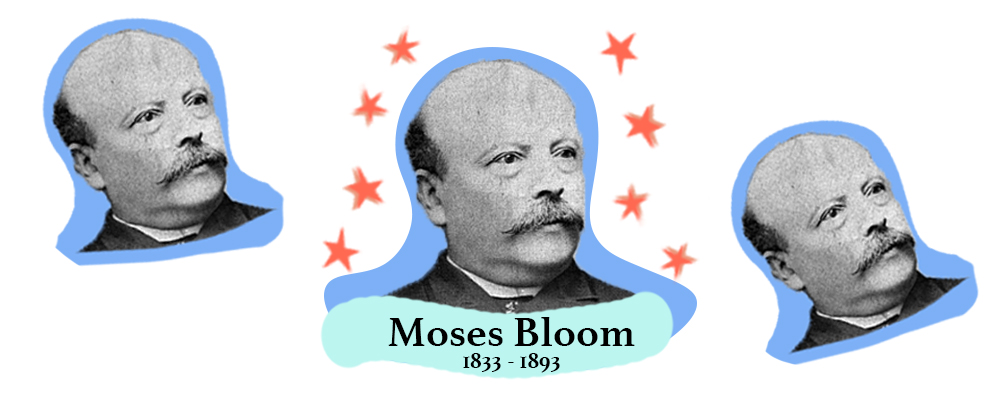
Moses Bloom was born in Alsace, France in 1833, and immigrated to the U.S. in 1850. He ended up in Iowa City in 1857 and opened a clothing store. In 1873, he was elected mayor of Iowa City. He served for two years. After that, he was elected to the Iowa House of Representatives, then the Iowa Senate. In 1879, he turned down the Democratic nomination for Lieutenant Governor of Iowa.
Fun fact: He was a Freemason. Also the first Jewish person in Iowa City. Like, ever.
First (male) Jewish governor of a U.S. State
This is also in dispute! The maybe first was a guy named David Emmanuel, who became governor of Georgia in 1801, but his Jewish heritage is super disputed, and it’s likely he was actually Presbyterian. So the first Jewish governor is…
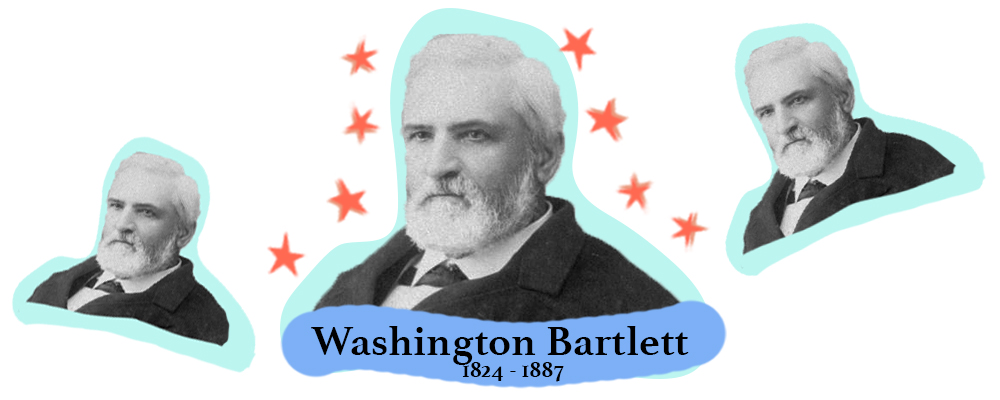
Washington Bartlett was born in Savannah, Georgia, in 1824. His mom was Sephardic; unclear about his dad. The “lure of gold” brought him to San Francisco in 1849, and he bought a printing press and established a daily newspaper, the Daily Journal of Commerce. Bartlett actually established the first daily newspaper on the west coast.
He started his political career in 1859, when he was elected the San Francisco County Clerk. In 1873, he was elected to the California State Senate, and in 1882, elected Mayor of San Francisco. In 1886, he became the Governor of California on the Democratic ticket. He died nine months into his term.
Fun fact: According to governors.library.ca, he was “a life-long bachelor with a reputation for honesty.” 🤔
First (male) Jewish Cabinet Member
Oscar Solomon Straus was born in Otterberg, Germany, and his family immigrated to the U.S. and settled in Talbotton, Georgia. At the end of the Civil War, he moved to NYC and attended Columbia University, and then Columbia Law School. In 1887, he was appointed U.S. Minister to the Ottoman Empire. (Minister is like one step under ambassador.)
In 1906, President Theodore Roosevelt appointed Straus Secretary of Commerce and Labour, thus making him the first Jewish guy to serve in a Cabinet. (Wikipedia helpfully points out that this does not include Judah Benjamin, who was Secretary of State in the Confederate cabinet. We are not counting him!) Then, in 1909, President Taft appointed Straus as U.S. Ambassador to the Ottoman Empire. In 1912, he unsuccessfully ran for governor of New York.
There’s now a statue, the Oscar S. Straus Memorial, dedicated to him in Washington, D.C.:
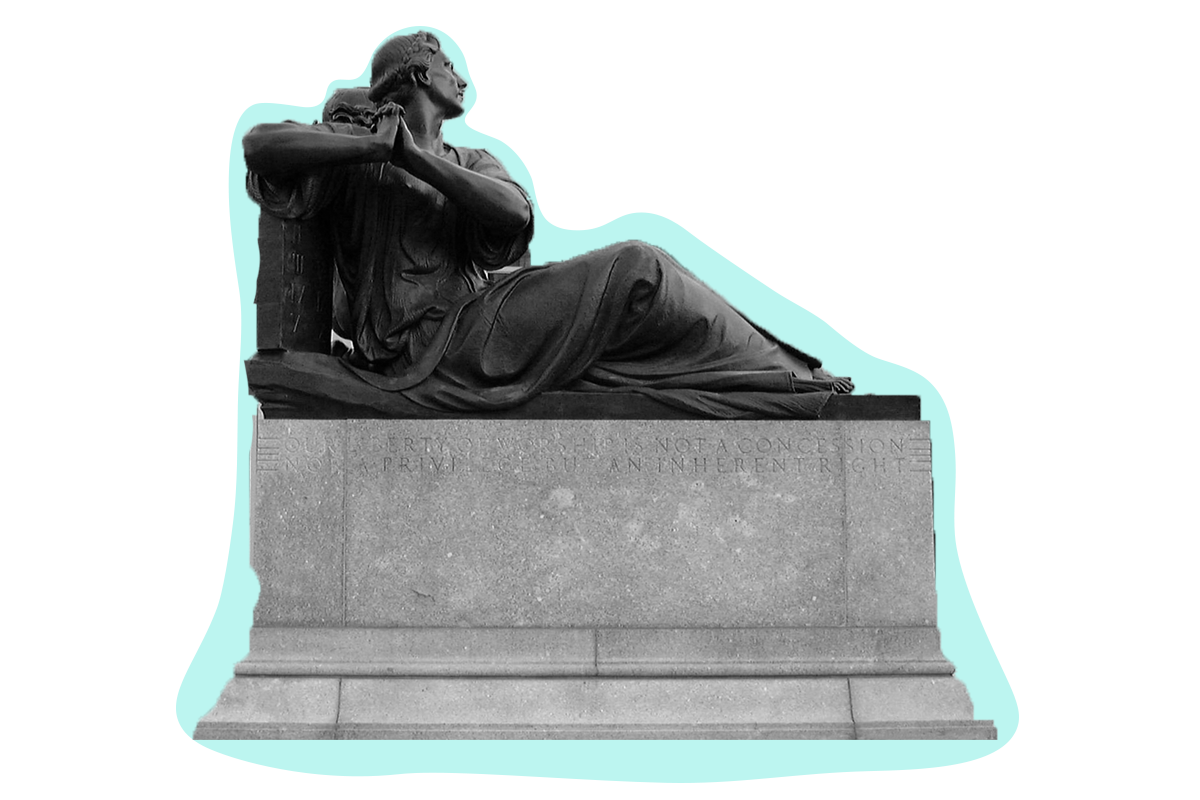
Fun fact: He wrote memoirs! Under Four Administrations; From Cleveland to Taft is only $9.95 on the Kindle right now.
Second fun fact? He’s related to King Princess. His brother, Isidor Straus, was Mikaela Straus’s great-great-grandpa.
First (male) Jewish justice of the Supreme Court
Louis David Brandeis was born in Louisville, Kentucky, to Ashkenazi Jewish parents from Bohemia (now the Czech Republic). He was the youngest of four siblings. He attended Harvard Law School, then founded a law firm in Boston. There’s so much out there on Louis Brandeis. Some highlights? He was known as the “people’s attorney” for his work on progressive social causes, including the right to privacy, labor laws, freedom of speech, and more. One of the most oft-quoted Brandeis opinions? He argued for the “right to be let alone,” regarding privacy. (He first discussed this in an 1890 Harvard Law Review article, “The Right to Privacy.”)
He also became a prominent figure in the Zionist movement before serving on the Supreme Court. He wrote on dual loyalty, explaining, “There is no inconsistency between loyalty to America and loyalty to Jewry.”
In 1916, President Woodrow Wilson nominated Brandeis to the Supreme Court. He went on to be confirmed by a vote of 47 to 22.

He served until 1939, when he retired. He died in 1941 from a heart attack.
Fun fact: There are so many things named after Brandeis, from Brandeis University to Kfar Brandeis, a suburb of Hadera, Israel.
First (female) Jewish member of the U.S. House of Representatives
Florence Prag Kahn was born in 1866 in Salt Lake City, Utah, to Jewish Ashkenazi parents from Poland. When she was 3, her family moved to San Francisco. She attended the San Francisco Girls’ High School, then University of California, Berkeley. After she graduated in 1887 as one of only seven women in her class, she taught high school English and history. In 1899, she married Julius Kahn.
Julius was born in 1861 in Kuppenheim, Baden (in what would become Germany). His family immigrated in 1866, ending up in California. He was elected to the U.S. House of Representatives in 1899, the same year he married Florence. Julius served until he died in 1924. And guess who replaced him? Florence!
She filled her husband’s vacancy and became the fifth woman to ever serve in Congress, and the first Jewish woman to do so. She was reelected five times, but did not win the 1936 election. She died in 1948 at age 82.
She never considered herself a feminist, once saying, “I am not specifically interested in so-called women’s questions as all national positions are sexless.” She also opposed women’s suffrage before California adopted it in 1911.
Fun fact: She was a Reform Jew, and a member of Congregation Emanu-El in San Francisco. Read more about Florence at Jewish Women’s Archive.
First (male) Jewish Secretary of State
Henry Kissinger was born Hienz Alfred Kissinger in Fürth, Germany, in 1923, to a Jewish family. In 1938, his family fled Nazi Germany, first to London (briefly) before settling in New York.
He went to City College of New York before he was drafted into the U.S. Army in 1943; he then became a naturalized U.S. citizen. He served in military intelligence and ended up in Germany. After the war, he attended Harvard, graduating with his Bachelor’s in 1950, then his Master’s and PhD in 1951 and 1954. He then remained on as a faculty member in the Government Department.
President Nixon appointed Kissinger National Security Advisor in 1969, then Secretary of State in 1973. He served under Nixon and Ford.
We’re not going to get into Kissinger’s foreign policy here — there are hundreds, if not thousands, of books to read on the subject. Kissinger himself has written over a dozen books.
A few highlights, or lowlights, whatever you wanna call ’em, that happened under Kissinger’s tenure: Détente (improved relationship with the Soviet Union); Vietnam War; 1973 Yom Kippur War; Chilean military coup; 1975 Helsinki Accord; Argentina’s Dirty War. He was jointly awarded the 1973 Nobel Peace Prize with Lê Đức Thọ over a ceasefire in Vietnam; that ceasefire failed. Tho declined the award, and Kissinger donated his prize money to charity.
Here’s a brief bio of him on the State Department’s website.
Fun fact: He served on the board of Theranos, Elizabeth Holmes’s failed start-up about blood testing.
First Jewish Attorney general
Edward Hirsch Levi was born in Chicago, the son of a Scottish rabbi, Gerson B. Levi. He was a big University of Chicago kid. “He remained at the university’s laboratory school through grade school and high school, then attended college, graduate school and law school at the university. He was at various times a law professor, dean of the law school, university provost and, finally, the university’s president.” He served as U Chicago president from 1968 until 1975. (He was also the first Jewish person to head a major American university.)
In 1975, President Ford appointed him the 71st Attorney General of the United States; he served for two years. Notably, during his term, he issued guidelines limiting the FBI’s activities: primarily, before wiretapping, they had to show evidence of a crime. (Remember, Watergate had just happened.)
After serving as Attorney General, he went back to teach at the University of Chicago. He retired in 1984. Here’s a nice bio of him from U Chicago.
Fun fact: His grandfather, Rabbi Emil G. Hirsch, was one of the founders of American Reform Judaism.
First (female) Jewish mayor of an American city
Dianne Feinstein was born Dianne Emiel Goldman in San Francisco to Ashkenazi Jewish parents. Her paternal grandparents were from Poland, and her maternal grandparents were from Russia and of German-Jewish ancestry. Feinstein attended the Convent of the Sacred Heart High School in SF before going to Stanford. She graduated in 1955.
In 1969, she was elected to the San Francisco Board of Supervisors. During her time on the Board, she unsuccessfully ran for mayor twice (in 1971 and 1975). In 1978, she was elected President of the board. That same year, in 1978, Mayor George Moscone and Supervisor Harvey Milk were assassinated by Dan White, a former Supervisor, who was angry that Moscone refused to reappoint him to the Board and that Milk had campaigned against his reappointment. Due to their deaths, Feinstein became mayor, serving out the remainder of Moscone’s term. She was then elected in 1979, and reelected in 1983.
In 1992, she won a special election to fill one of California’s Senate seats. The other senator was retiring, and Barbra Boxer was elected for the other seat. Feinstein was elected to fill out the remainder of a term, however, so she became the senior senator. Yet, they both became the first Jewish women to serve in the Senate. (See below for more on Boxer!) She’s had a long career in the Senate, and she’s still there.
Fun fact: She’s been married three times!
First (female) Jewish governor of a U.S. State
Madeleine Kunin was born in Zurich, Switzerland to a Jewish family who moved to the U.S. when she was a child. She attended University of Massachusetts Amherst, then Columbia for a degree in journalism and University of Vermont for a master’s in English.
In 1972, Kunin was elected to the Vermont House of Representatives. In 1978, she became the Lieutenant Governor of Vermont; the Governor, Richard Snelling, was a Republican and she was a Democrat. In 1984, Snelling didn’t run for reelection, and Kunin ran, and won, becoming the first female, and first Jewish, governor of Vermont. She served from 1985 to 1991, becoming the first woman in U.S. history to be elected three times as governor. (Her second time, she was challenged by an independent named Bernie Sanders.) She didn’t seek reelection in 1990.
Under President Clinton, she was the U.S. Ambassador to Switzerland and then Liechtenstein.
Fun fact: She’s received more than 20 honorary degrees!
First openly gay Jewish member of the U.S. Congress
Barney Frank was born and raised in Beyonne, New Jersey, to an Ashkenazi Jewish family. He attended Harvard, and then Harvard Law School. He first served in the Massachusetts House of Representatives in 1972, before being elected to the U.S. House in 1980. In 1987, he came out as gay; he was the first member of Congress to voluntarily come out. Let’s let him recount:
… This led to two important conversations in the early summer of 1986. The first was with Speaker Tip O’Neill, my fellow Democratic congressman from Massachusetts. As a great admirer of his leadership, I felt obligated to let him know that following the 1983 revelation of Rep. Gerry Studds’ relationship with a male House page, for which Studds was censured by the House, there might be another sex-related controversy in our party that he’d have to handle.
I approached him on the floor of the House, as we were watching a majority vote doom our effort to curtail President Ronald Reagan’s aid to the Nicaraguan contras. I knew this was an inauspicious moment, but I couldn’t stand the suspense of not knowing what his reaction would be. “Tip,” I said, “Bob Bauman has just written a book that says I’m gay.”
“Aw, Barney,” he consoled me, “don’t pay any attention. People are always spreading shit about us.”
“But, Tip,” I said, “the problem is that it’s true.”
He looked stricken, though he immediately made clear it was not my sexuality that troubled him but the negative impact its disclosure would have on my career. “I’m sorry to hear it,” he said. “I thought you might become the first Jewish speaker.”
As upset as I was at the prospect of a premature outing, the fact that a man I respected so much had said such a flattering thing made me feel better.
(Read the rest of the story here.)
He did not seek re-election in 2012, and retired in 2013, after serving for 21 years.
Fun fact: In 2012, he married his partner, James Ready, also becoming the first member of Congress to be in a same-sex marriage.
First (female) member of the U.S. Senate
It’s a tie! Dianne Feinstein (see above) and…

Barbara Levy Boxer was born in 1940 in Brooklyn, New York, to Ashkenazi Jewish immigrants. She attended Brooklyn College, graduating in 1958, then married Stewart Boxer in 1962.
Fast forward to 1982, and she is elected to the U.S. House of Representatives. Her slogan? “Barbra Boxer Gives a Damn.” In 1992, she was elected to the Senate, representing California, in “Year of the Woman.” Boxer and Feinstein became the first female pair of U.S. Senators representing any state at the same time. And the first pair of Jewish women! She served until 2017, when Kamala Harris succeeded her.
Fun fact: She was in not one, but two, episodes of Parks and Recreation.
First (female) Jewish justice of the Supreme Court
I mean, we know all about RBG, right!?
Ruth Bader Ginsburg was born Joan Ruth Bader in 1933 in Flatbush, Brooklyn, to Ashkenazi Jewish parents. Her dad was from Odessa, Ukraine, and her mom was the daughter of Austrian Jewish immigrants. Let’s just bullet everything, because there’s so much to know:
- She attended Cornell, where she met Marty Ginsburg.
- She went to Harvard Law School, as one of only nine women in her class of around 500.
- She then transferred to Columbia Law School, graduating in 1959 first in her class.
- She struggled to get a job because she was a woman, and a Jewish person.
- She started teaching at Rutgers Law School in 1963.
- In 1972, she co-founded the Women’s Rights Projects at the ACLU.
- She wrote the brief for Reed v. Reed, which eventually led the Supreme Court to rule that you can not discriminate on the basis of sex.
- President Jimmy Carter nominated her to the U.S. Court of Appeals, where she served from 1980 to 1993.
- In 1993, President Clinton nominated her to the Supreme Court. The Senate confirmed her by a 96 to 3 vote.
- She became the second-ever female justice, and the first Jewish female justice, and is now the longest-serving Jewish justice.
- She’s written a ton of very notable opinions and dissents.
- Agh we can keep going!!
Fun fact: She love scrunchies. She was “Camp Rabbi” at Camp Che-Ne-Wah in the Adirondacks. I saw her speak and honestly it was a night I’ll remember forever. She loves opera. She met Kate McKinnon (who portrays her on SNL) at the Yiddish production of Fiddler on the Roof.
First (female) Jewish cabinet member + first (female) Jewish Secretary of State
Madeleine Albright found out she was Jewish later in life. She was born Marie Jana Korbelová in Prague, in 1937, to parents named Josef and Anna. In 1941, Josef and Anna converted from Judaism to Catholicism to protect their family from the Nazis. Marie (Madeleine) and her siblings were raised Catholic, and her parents never told her about their Jewish ancestry. In 1959, she converted to Episcopalianism following her marriage to Joseph Medill Patterson Albright. (They divorced in 1982.)
In 1997, she discovered her Jewish heritage at age 59. She visited the Pinkas Synagogue in Prague, where she found the names of her grandparents who died in the Holocaust. “It’s one thing to find out you’re Jewish. It’s another thing to find out that your grandparents had died in the Holocaust,” she explained. Nearly a dozen of her relatives were murdered in the Holocaust.
That is why we’re including her on our list of firsts: she now claims her Jewish heritage, even if she doesn’t identify as Jewish.
Quick on Madeline’s career? She attended Wellesley, graduating in 1959. She then got a Master’s and PhD from Columbia in their political science department. She wrote her dissertation on the Prague Spring of 1968.
Clinton appointed her Ambassador to the UN in 1993, and in 1997, she became the 64th U.S. Secretary of State. She became the first female Secretary of State, the first Jewish woman to serve in a Cabinet, and the first Jewish female Secretary of State. She served through the end of Clinton’s term in 2001.
Fun fact: She is the person who said, “There is a special place in hell for women who don’t support other women.” She now regrets saying it.
First Jewish person to be a VP nominee on a major party ticket
Joe Lieberman was born in 1942 in Connecticut to an Ashkenazi Jewish family. He attended Yale, then Yale Law School.
He married Betty Haas in 1965 while he was in law school. They had two children, then divorced in 1981. In 1982, he met Hadassah Freilich Tucker. They married the same year. Hadassah is an observant Modern Orthodox Jew; Joe considers himself observant, but not Orthodox. They keep a kosher home.
In 1970, he was elected to the Connecticut Senate, and in 1983, he became Attorney General of Connecticut. In 1988, during his campaign for Senate, he didn’t campaign on Shabbat. He was a Senator from Connecticut from 1989 to 2013.
In 2000, Al Gore selected Lieberman as his VP pick. He became the first observant Jew to run on a major party ticket, and the first Jewish person to be a nominee on a major party ticket.
Fun fact: In 2008, he endorsed Republican John McCain for president over Barack Obama. In 2016, he endorsed Hillary Clinton.
First Jewish person to win a U.S. presidential primary
Bernie Sanders was born in Brooklyn in 1941 to an Ashkenazi Jewish family. His father was a Jewish immigrant from Poland, and his mother was born in America to immigrant Jewish parents from Poland and Russia. Sanders grew up in a super Jewish neighborhood and was bar mitzvahed in 1954. In 1963, he lived and worked on Kibbutz Shaar Haamakim in northern Israel.
“I’m proud to be Jewish,” Sanders said in June 2015. “I’m not particularly religious.”
He studied at Brooklyn College, then transferred to University of Chicago. He graduated in 1964 and moved back to New York, then in 1968, he moved to rural Vermont. In the 1970s, he ran for governor of Vermont and as a candidate for U.S. Senator as a member of the Liberty Union. He didn’t win. In 1980, he ran for mayor of Burlington and won; he was mayor from 1981 to 1989.
He was elected to the U.S. House in 1991, serving until 2007. In 2006, he was elected a U.S. Senator, and re-elected in 2012 and 2018. He was an Independent until 2015, when he switched to the Democratic party.
He ran for the Democratic nominee for President, and he won the New Hampshire primary in February 2016, becoming the first Jewish person to win a U.S. Presidential primary. He’s now running, again, in 2020. You can read about where he stands on Jewish issues here.
